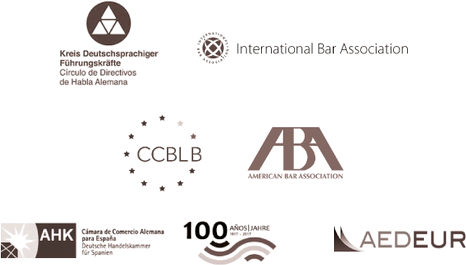
AIJA’s 5th Annual Competition Conference
09/03/16
In between two “mascletàs”, the 5th Annual Competition Conference of the International Association of Young Lawyers (“AIJA”) took place last weekend in Valencia. AIJA is a non-profit organisation that gathers approximatively 4000 lawyers aged under 45 years from around the world. Based in Brussels, the association organises courses and seminars in all areas of the law with an aim to promoting cooperation among young lawyers of different nationalities.
The 5th Annual Competition Conference dealt with the most recent developments in Competition law in the media, technology and telecommunications sectors.
Having regard to the German Competition Authority’s recent announcement to be investigating Facebook for a possible abuse of its dominant position by how it collects and treats personal data of its users, several panellists asked themselves whether it is opportune to analyse “big data” from a Competition law perspective. The concerns raised by the massive collection of data increase in cases of dominant position. Basically the fear is, on the one hand, that companies with high market shares may incur in abusive practices for collecting and processing data without guaranteeing sufficient transparency (which is the gist of Germany’s case against Facebook), and, on the other hand, that data may constitute a barrier to entry and that companies already present on the market may foreclose new entrants. As regards the first question, several panellists pointed out the danger that Authorities may endow dominant companies with a “special responsibility” as regards compliance with other laws than the competition rules.
Another difficulty when assessing abusive practices related to big data is market definition. The panellists emphasised the difficulty of defining (i) the relevant product, since different types of data are collected from different sources, and data is frequently the “price” that consumers and/or users pay for very different products and/or services; and (ii) the geographic market, since this requires drawing borders for actions that take place on platforms and websites which are internationally accessible.
Still on international accessibility, we move on to another subject that garnered great interest during the Conference, namely the compatibility of national copyright legislation with the Digital Single Market, purportedly one of the objectives of the Juncker Commission. Panellists i.a. commented on the on-going Case AT. 40023 Cross-border access to pay-TV content, where the Commission objects to the fact that US majors and European broadcaster Sky UK impose territorial restrictions on protected audio-visual content in a way which is incompatible manner with the Single Market. This will be a landmark case to understand whether or not geo-blocking is compatible with competition rules when the contract goods are protected content under copyright or similar laws. Moreover, the case is unfolding during the pending review of several European Directives ikn this domain. The Commission is facing obvious criticism: is it trying to circumvent Co-decision (sorry: the “ordinary legislative procedure”) – it being unclear yet whether it would obtain the necessary support – by a fining procedure? We will have to wait and see how this case goes.
Moreover, the Conference also covered several recent merger cases in the telecommunications sector and resale price maintenance for e-books as an alleged means to protect culture. This is a hot topic at the moment, since the Supreme Court of the United States confirmed a fine of some 410 million euros on Apple for having agreed with publishers on higher prices for e-books…
Rating Legis SLP
T/F: +34 932 724 264
Provença, 253
08008 Barcelona
<!–
Members of:



